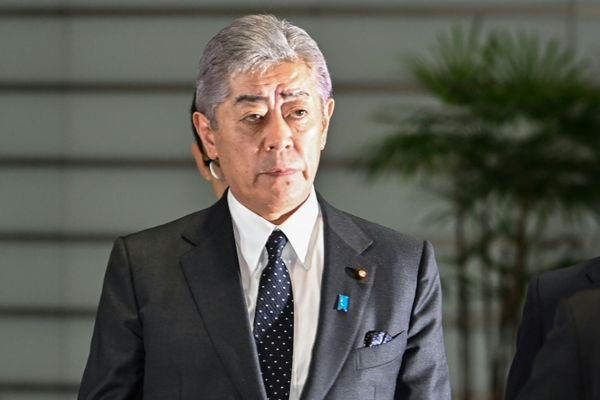
Another SAS soldier has refused to give evidence in court about an alleged murder during an Afghanistan mission under the patrol command of war hero Ben Roberts-Smith.
The special forces soldier, codenamed Person 66, began his testimony in the Federal Court on Monday, when he was asked about a military operation in 2012 under the Victoria Cross recipient.
The witness objected to giving any further evidence due to “self-incrimination” and is the second elite soldier to refuse to speak at the defamation trial, even granted with a certificate of immunity.
The news outlets Mr Roberts-Smith is suing allege he ordered Person 66 to execute a prisoner during a mission in Syahchow, which federal government MP Andrew Hastie also participated in.
Mr Hastie – the assistant minister for defence who was a captain in the Special Air Service Regiment between 2010 and 2015 – previously told the court Mr Roberts-Smith walked past him following the alleged execution.
“He looked me in the eye and said ‘just a couple more dead c***s’.”
The two soldiers later attended a de-briefing with their officer in command, Mr Hastie said on Monday.
He said he sat “naive” listening to his colleague provide a “different summary” of events that made little sense to him.
Mr Hastie did not witness the alleged “blooding” – a practice which refers to a junior soldier getting their first kill in action – but became aware weeks later, saying it was a “big step to accuse someone of unlawful conduct”.
“I had a gut feeling something wasn’t right,” Mr Hastie told the court.
“I remember saying things didn’t add up on that job,” and that “the numbers” weren’t stacking up, he said.
Mr Roberts-Smith, 43, is suing The Age, The Sydney Morning Herald and The Canberra Times over reports claiming he committed war crimes and murders in Afghanistan between 2006 and 2012.
The former SAS corporal denies all the claims against him, while the media outlets are defending them as true.
Mr Hastie defended speaking to journalists while an inquiry into the war crime allegations was underway, saying the “system has failed”.
He was accused by barrister Arthur Moses SC, on behalf of Mr Roberts-Smith, of not having the courage to put his name to those allegations.
Mr Hastie said the accusations were put by numerous special forces members and he was providing support appearing in an interview on the Nine Network’s 60 Minutes program.
“The reason these allegations have come to light is because the systems have failed thus far,” he told the court.
He said the “fourth estate” was doing important work shedding light on incidents that helps “keeps democracy healthy”.
Mr Roberts-Smith’s lawyers have repeatedly suggested allegations against the war hero were made up by a small group of peers who were jealous of his military accolades.
Mr Hastie previously listed to the court 20 people who had suggested to him that Mr Roberts-Smith was a hypocrite – that “the outward facing picture of Mr Robert-Smith was at odds with his battlefield conduct”.
He initially highly regarded Mr Roberts-Smith, but no longer was proud of him, he said, while denying that he disliked him.
“I pity him,” he said on Friday.
“I don’t want to be here… this is terrible for our country. It’s terrible for the SAS. It’s terrible for the army.”
Mr Hastie denied he had been critical of Mr Roberts-Smith to raise his own profile as a parliamentarian or that he had come to court to support the claims because the newspapers’ publisher was giving him financial assistance in another legal matter.
The trial continues.







